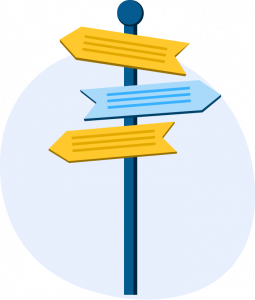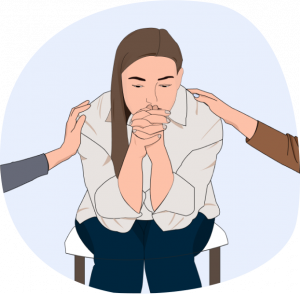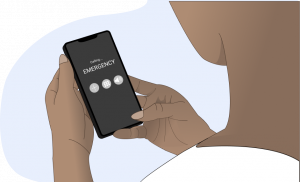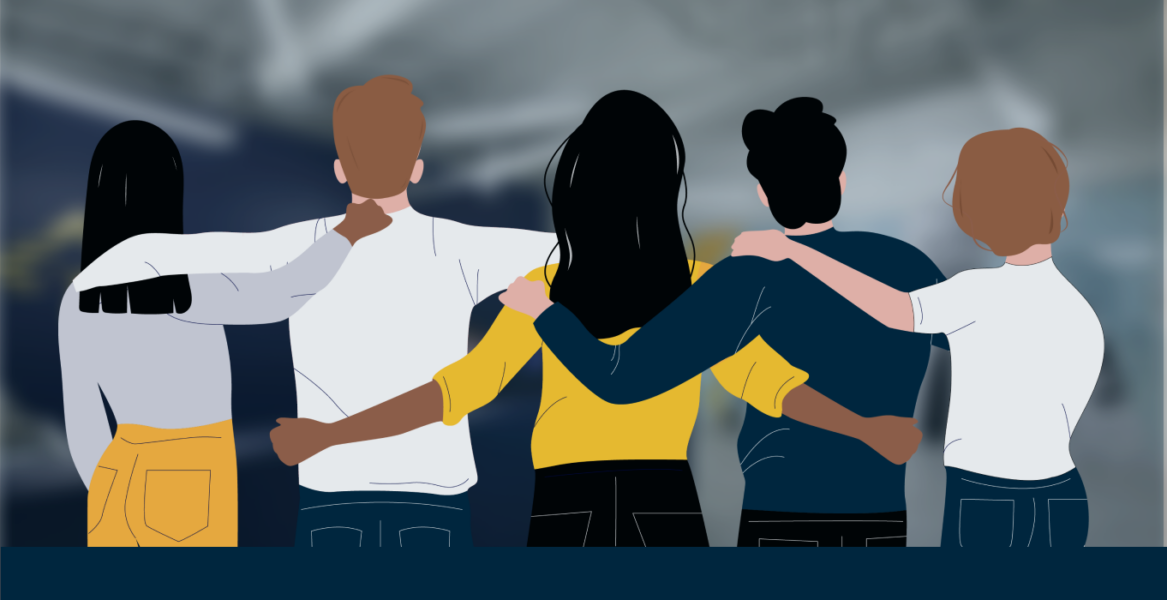“If you don’t use it, you’ll lose it”.
-Jason Magallanes, National Training and Development Manager
When it comes to first aid, keeping up on your skills and new information is crucial. If you aren’t performing CPR daily or assisting someone who’s having a stroke (which most of us aren’t), the training can quickly and easily be forgotten. But that means when it is time to step in during an emergency, what will you remember?
We want to help keep first aid and lifesaving skills at the top of your mind, so we have created an eight-part mini-series that will appear once a month to do just that. Our first few topics were emergency scene management, severe bleeding, broken bones, and CPR. This month’s topic is Mental Health Awareness.
Did you know one in five Americans deal with mental health issues each year? The World Health Organization’s definition of health is a state of complete physical, mental, and social well-being, and not merely the absence of disease or infirmity. This includes your mental health!
So, what exactly is mental health? It’s the capacity of each and all of us to feel, think, and act in a way that enhances our ability to enjoy life and deal with the changes we face. It’s a positive sense of emotional and spiritual well-being that respects the importance of culture, equality, social justice, interconnections, and personal dignity.
Mental Health Factors to Consider
 There are dozens of factors in our everyday lives that could affect our mind frame. Here are just a few:
There are dozens of factors in our everyday lives that could affect our mind frame. Here are just a few:
- A traumatic event
- The birth of a baby
- Death or illness
- Job loss
- Drug or alcohol abuse
Everyone has a different reaction to factors that affect our mental health. If you or someone you know is dealing with a life-changing incident, consider if your or their reaction is realistic or considered normal. A hint that it may not be is if the reaction is affecting the person’s ability to enjoy life.
The Range of Mental Health
Healthy
- Physically and socially active
- Performing well
- Limited or no alcohol/gambling
Reacting
- Deceased social activity
- Procrastination
- Regular alcohol use/gambling
Injured
- Avoidance
- Tardiness
- Decreased performance
- Alcohol/gambling hard to control
Ill
- Withdrawal
- Absenteeism
- Cannot perform duties/tasks
- Alcohol/gambling addictions
The above depicts shows the range of mental health. Notice the reaction and how it intensifies as a person’s mental health worsens. Note, this is not a tool to diagnose someone, that should be left for mental health professionals.
*Source: www.theworkingmind.ca
Signs & Symptoms
There are numerous signs and symptoms of mental health problems, including:
- A change in social behavior
- Not being focused at work/coming in late or not at all
- Withdrawing from others
- Increased fatigue/irritability, poor hygiene, weight gain/loss
- Not being themselves
C.A.R.E
C.A.R.E. is an easy way to remember the steps for responding to a Mental Health Issue.
C – Call for help: If there is no risk of suicide, then move to the next step.
A - Ask and Listen: What kinds of things do we do when we are NOT listening?
R – Respond with options that may be available to assist them: It’s important to remember to provide options and not advice. You could say “what you’re feeling is normal and there are people who can help. Let’s do it together”. Most towns and cities have local hotlines, chat lines, mental health crisis teams, and support groups available.
E – Encourage support in a variety of ways: Ask this person if their family is aware or if their doctor knows. Check in with this person to see if they have sought help.
Remember, it’s okay to not know what to say. Being there is sometimes enough.
Mental Health Recovery
There are several ways to treat mental health that go beyond talking to someone or taking medication. Simple acts, such as taking a walk daily, exercising, picking up a new hobby, or even enjoying work could help. As a first aider, it’s important to care for yourself as well. Identify a self-care plan to keep healthy and take time out for yourself regularly.
Resources
 It is crucial in this day and age to keep on top of your mental health. There are endless resources at our fingertips to help do so.
It is crucial in this day and age to keep on top of your mental health. There are endless resources at our fingertips to help do so.
The National Helpline provides 24-hour free and confidential referrals and information about mental and/or substance use disorders, prevention, treatment, and recovery in English and Spanish.
SAMHSA's National Helpline
800-662-HELP (4357)
TTY: 800-487-4889












